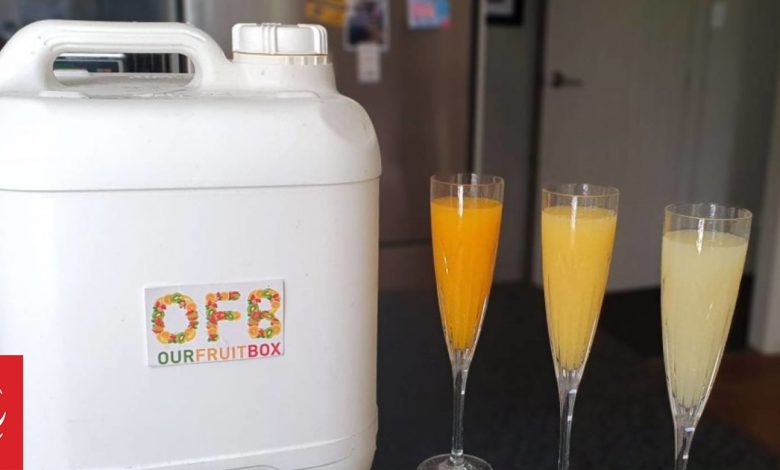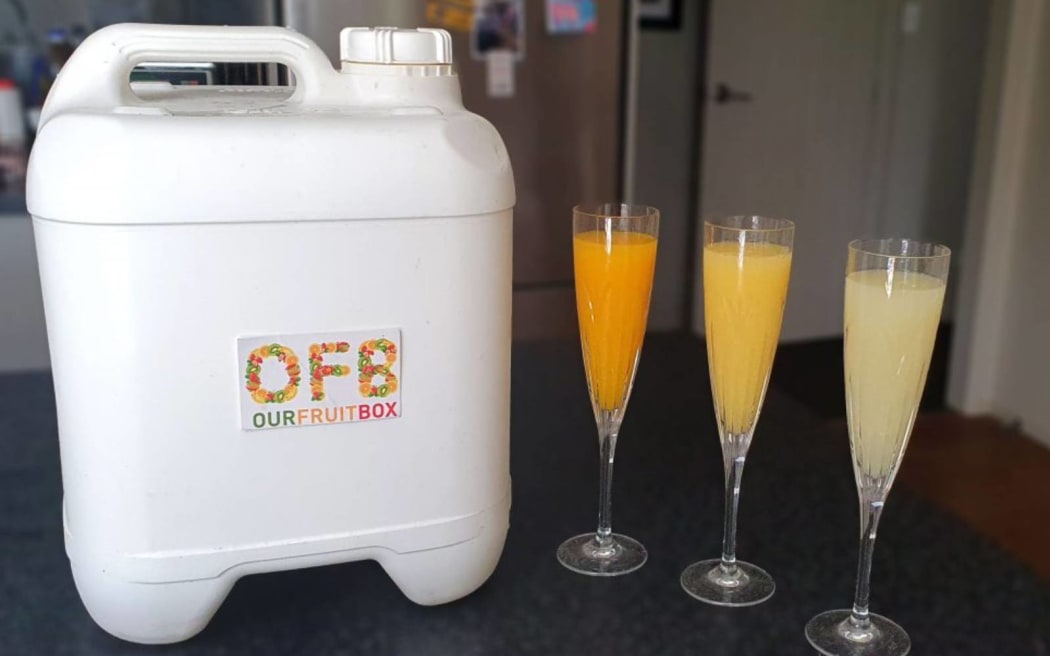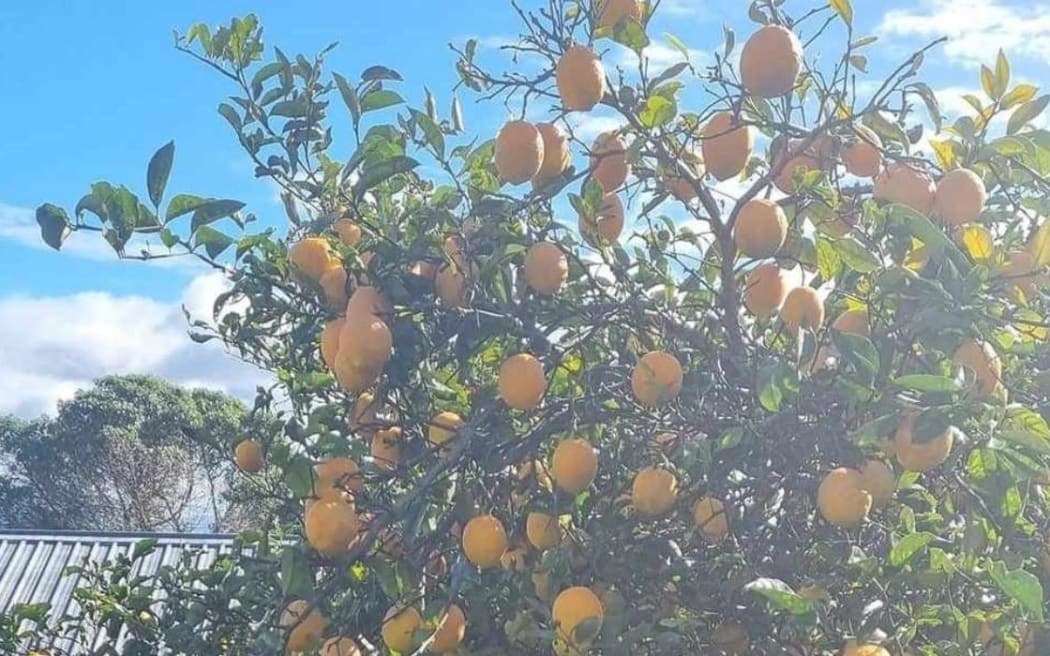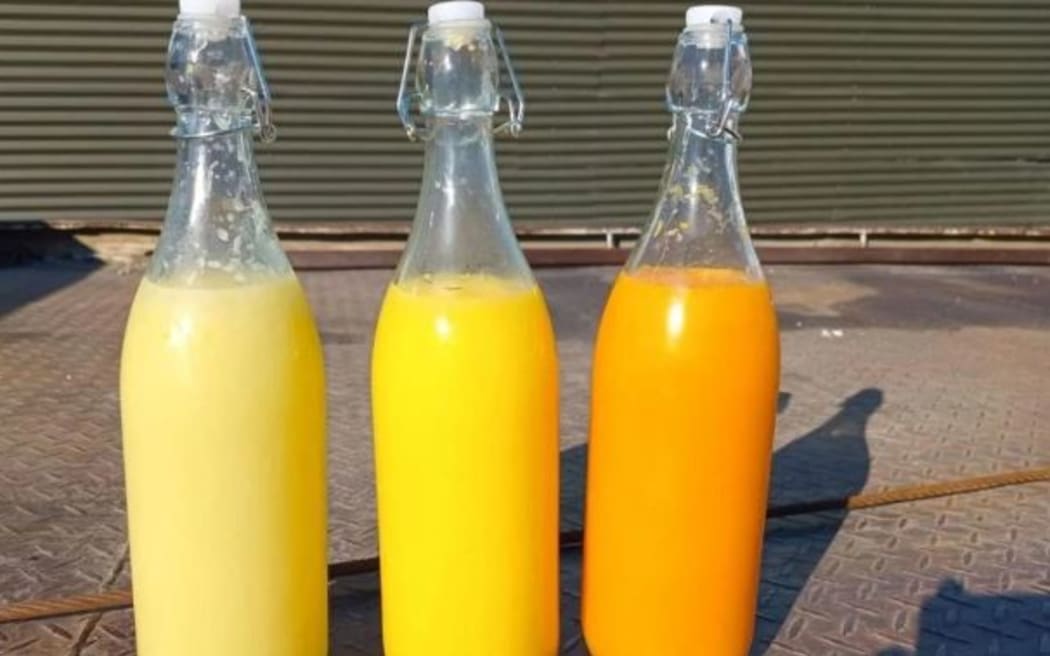‘I’m an opportunist’: Under-fire juice business owner slammed for ‘unethical’ fruit sourcing

By Caroline Williams of

A woman who sells the juice of free fruit intended for the community to enjoy has denied she is acting unethically.
Our Fruit Box owner Jade Tatana previously told Stuff she would continue to produce and sell fruit juice, despite her business not being registered under the Food Act.
It came after New Zealand Food Safety issued a recall of Our Fruit Box’s products due to concerns the unpasteurised juice could make people ill.
“God is my boss, not MPI,” she told Stuff previously.
“Until someone does get sick and they can prove it’s from our product, I won’t stop.”
Tatana has since been accused of being unethical while sourcing fruit for her business.
Welcome Bay, Tauranga, resident Anamaria Borell and her whānau regularly pick lemons from their trees and put them in large bins at the end of the driveway to share with locals.
One day she found a note and business card in her mailbox from Tatana, who said she had taken all the lemons to juice and sell.
Borell said Tatana’s actions went against the spirit of her whānau sharing their fruit, which was not intended to be sold for profit.
“We allow everyone and anyone to come and help themselves. But she just felt like she could take it all.”
The same week, Borell said Tatana showed up at her marae, Whetu Marae, during a tangihanga (funeral) to try and sell juice.
“She obviously doesn’t know the tikanga of a tangi. She was just very abrupt and just didn’t care.”

Borell believed it was likely the juice she was selling was made from the lemons Tatana took from her.
“She’s trying to sell our free fruit to our own people,” Borell said, adding that her whānau felt “robbed”.
Tatana told Stuff she took about 20kg of lemons from Borell’s property.
“There was a crate full of them. It said ‘free lemons’ and I took it.”
No one was home at the time, so she left her business card in the mail box.
She later offered Borell some juice in exchange for the lemons, but Borell declined and told her not to return, Tatana said.
Asked about whether the juice from Borell’s lemons was the same juice she attempted to sell Whetu Marae, Tatana said there was no way of knowing.
“We collect a lot of lemons along the way… I couldn’t tell you what batch it was from.”
She denied that she had been disrespectful by attempting to sell juice at a tangi.
“I’m not a bad person, I’m an opportunist.”
Te Puke resident Leslie Miles (Tapuika) said Tatana approached her family to ask for some lemons from their trees, which the family allowed, assuming she wanted them for personal use.

Tatana returned a few weeks later to ask for some tangelo oranges, telling Miles’ mother that she wanted to give juice to the community for free, as well as sell some through her business.
Miles said their fruit trees were infected with a pest and sooty mould, therefore they were not fit to be juiced and sold.
“I wouldn’t want her to sell it because the trees have sooty mould on them. The mould could get into the juice.”
When Tatana was told this, she allegedly became defensive and questioned why Miles did not want to “give juice back to the people”.
“She really didn’t care… She doesn’t care about food safety,” Miles said.
Tatana told Stuff the juice she made from Miles’ family’s lemons was “beautiful”.
“That juice sold in a day.”
She confirmed that she and Miles had gotten into an argument when she returned for more fruit.
“If these people aren’t going to do anything with their fruit, I will. But if they don’t want me to take them, I won’t.”
She claimed that while she did not wash the fruit before juicing it, the sooty mould would not go into the juice.
Any mould that did make it into the juice would be “frozen out” in the freezer.
“People that we’ve sold it to are still alive.”
According to a study by New Zealand Food Safety, undertaken due to a number of “major outbreaks” involving frozen produce in recent years, most bacterial and viral pathogens found on fresh fruit can survive being frozen.
Our Fruit Box’s juice was recalled by NZFS on 4 April, due to the company not being registered under the Food Act.
Anyone who purchased the juice was told to throw it away, as it could contain pathogens such as E.coli, salmonella or norovirus, which made it unsafe to drink, particularly for children, the elderly, pregnant people or those who are immunocompromised.
Businesses registered under the Act must have plans in place to identify and address food safety risks during the growing, harvesting, manufacturing and sale process.
There had been no reports of anyone falling ill after consuming Our Fruit Box’s juice thus far.
In 2014, Tatana – whose full name is Riiria Jade Tatana – was convicted of forgery after she used a fake driver’s licence, which was custom-made for her in Bangkok.
Tatana said she started Our Fruit Box because of her history with the law.
“Due to my criminal record I’m not the ideal employee. So I had to create something and it’s working.”
She learned how to juice fruit as a child at her marae, she said.
“As kids, that was our job when we went to tangi.”
NZFS deputy director-general Vincent Arbuckle previously said it was “extremely concerned and disappointed” to learn Tatana would continue to sell her juice without a registration unless someone fell ill.
“The reported comments reflect a lack of appreciation for her legal obligations, not to mention any concern for the health of consumers.”
Arbuckle could not comment further on Tatana’s practices while Our Fruit Box was under investigation.
Individuals who fail to adhere to the Food Act could be fined up to $20,000.
Further fines could be imposed if the food product caused people harm.
This story was originally published by Stuff.
According to the news on Radio New Zealand




